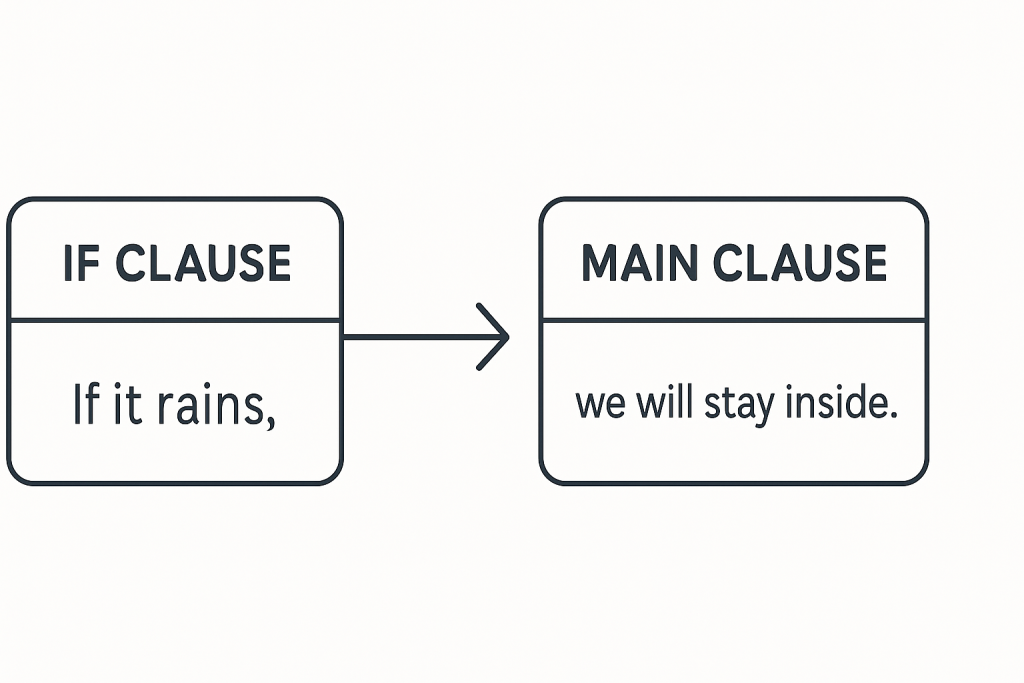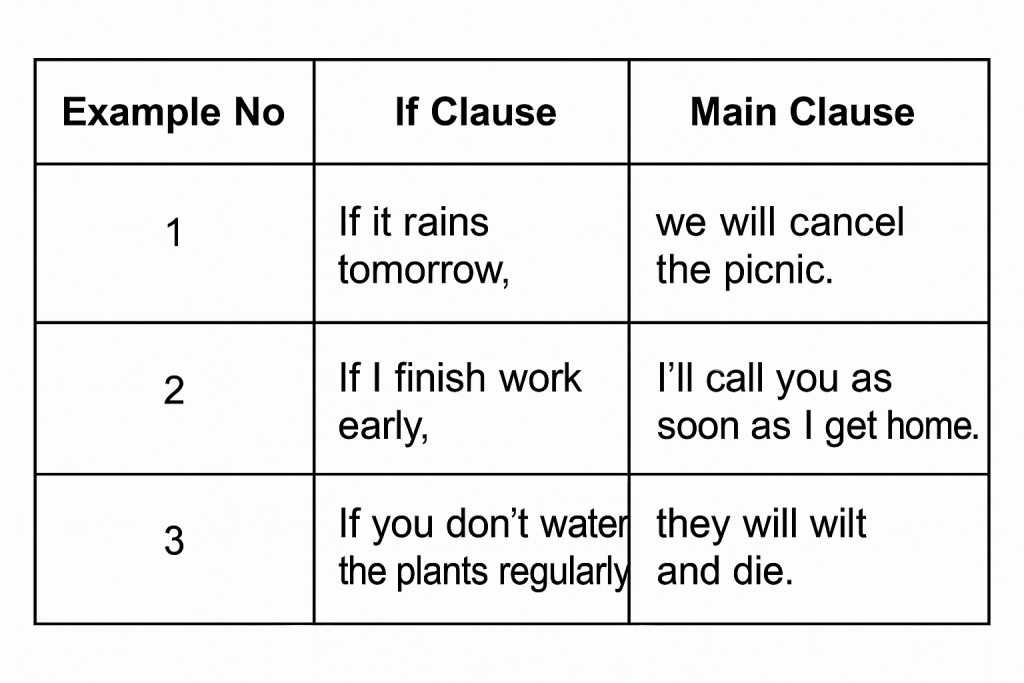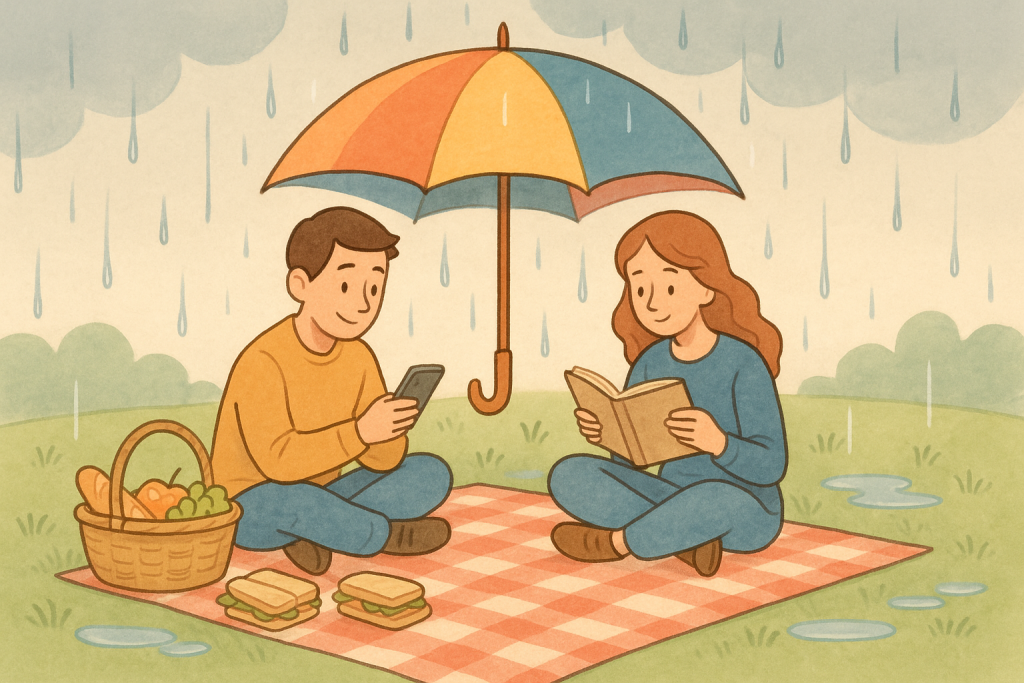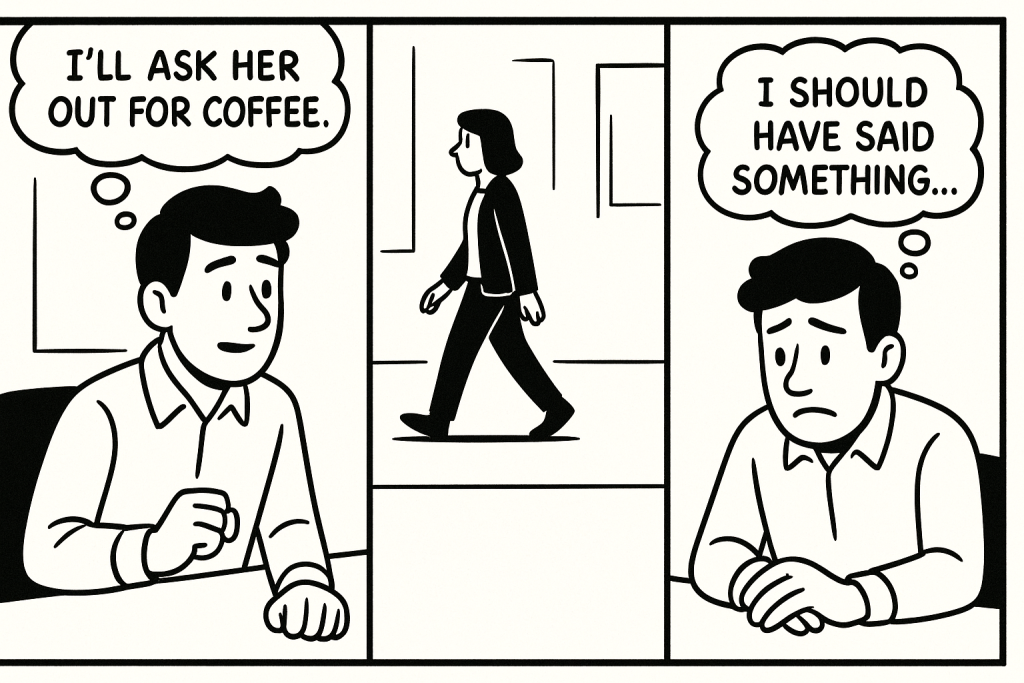
Introduction: Because “If” Is a Big Deal
Conditional sentences are those lovely little “what ifs” we use when we’re speculating, threatening, regretting, or just trying to sound smarter than we are.
They’re everywhere. And if you don’t understand them yet—congrats, you’re part of the 8,100 monthly Google searches that also don’t.
In this post, we’ll break down conditional sentences rules, show you the types of conditional sentences, and give you real-world conditional sentence examples. You’ll leave here with grammar knowledge and, hopefully, fewer regrets.
So… What Is a Conditional Sentence?
A conditional sentence is basically a cause-and-effect sandwich. You take an “if clause” (the condition), slap on a “result clause” (the effect), and voilà—you’re now grammatically predicting the future, mourning the past, or avoiding responsibility.
Here’s the basic structure:
- If clause: The condition
- Main clause: The result
Let’s meet the dysfunctional family of conditionals:

- Zero conditional – for facts nobody asked for
- First conditional – for actual possibilities
- Second conditional – for hypotheticals that sound like lies
- Third conditional – for regrets and passive-aggressive diary entries
The 4 Types of Conditional Sentences (And How Not to Mess Them Up)
🧊 Zero Conditional: Facts You Can’t Argue With
Structure: If + present simple, present simple
Use it when: Something always happens when something else happens. Think science class. Or your mom when you don’t do the dishes.
Examples:
- If you mix red and blue, you get purple.
- If you don’t water plants, they die.
- If my cat sees a cucumber, it freaks out.
👉 Want to brush up on sentence basics? Check out our guide to simple sentences.
☁️ First Conditional: Real, Boring, Adult Possibilities
Structure: If + present simple, will + base verb
Use it when: You’re talking about things that might actually happen. Like going to the gym. Or answering emails on time.

Examples:
- If it rains, I’ll stay inside and cry.
- If you study, you’ll pass. Maybe.
- If my boss calls, I’ll pretend I’m in a tunnel.
👉 For more tense drama, read up on verbs ending in -s—yes, it matters.
🌀 Second Conditional: Let’s Pretend!

Structure: If + past simple, would + base verb
Use it when: You’re dreaming, joking, or just refusing to face reality.
Examples:
- If I were rich, I’d buy a yacht and never answer emails again.
- If he knew her name, he’d probably still forget it.
- If you were more organized, you wouldn’t be reading this post at 3 a.m.
👉 Like weird expressions? Check out these underrated regional idioms while you’re in fantasy land.
⏳ Third Conditional: Regrets, I’ve Had a Few
Structure: If + past perfect, would have + past participle
Use it when: You’re talking about things that didn’t happen… and now it’s too late.
Examples:

- If I had studied, I would have passed. But here we are.
- If they had left earlier, they wouldn’t have missed the flight.
- If I had known, I would’ve just stayed in bed.
👉 Want to nerd out over past tenses? Here’s a simple verb tense breakdown.
Also, if you want a straightforward explanation from someone with a British accent (in your head), visit Cambridge’s guide to conditionals. It’s shockingly helpful.
Tips for Actually Using Conditional Sentences Like a Human
- Don’t mix your tenses like soup ingredients. Keep structures clean and consistent.
- Practice out loud. Preferably when no one’s around to hear your conditional karaoke.
- Use real tools. This grammar checker might actually prevent your brain from combusting.
- Gamify your learning. No, seriously. Try this vocab tool if you’re into that kind of thing.
Conclusion: If You Got This Far, You Deserve a Trophy
You made it through all four conditional types, and now you’re equipped to use them without sounding like a confused time traveler.
Now what?
Use them. Talk to your cat in conditionals. Write a poem in second conditional. Regret yesterday’s lunch using third. Flex those grammar muscles.
